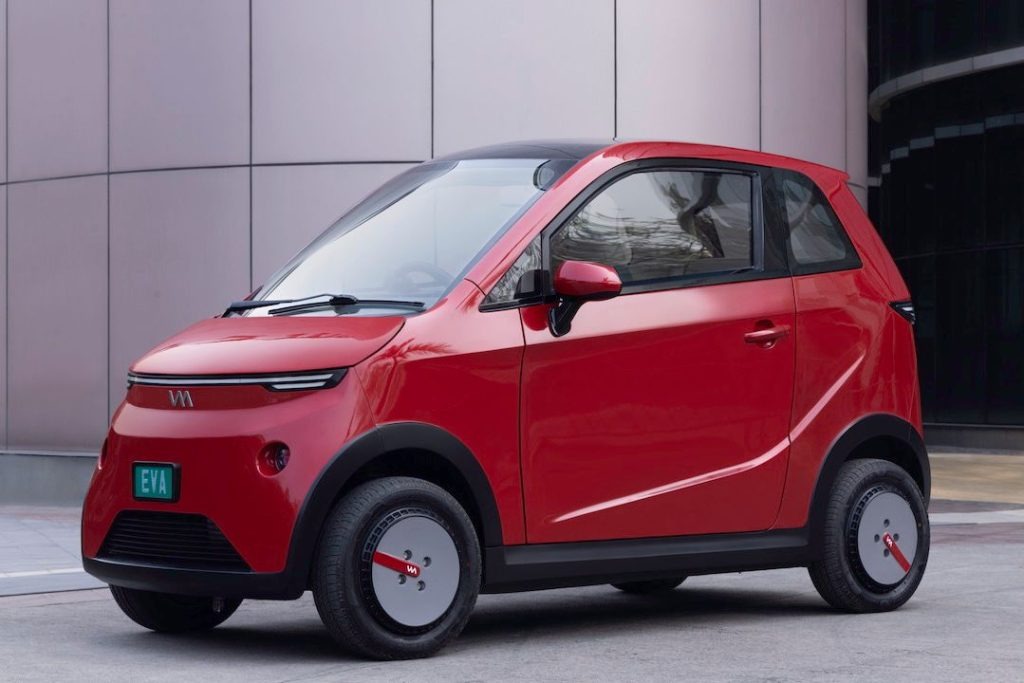Indian startup Vayve Mobility unveils a production version of its low-cost electric car Eva at the Bharat Mobility 2025 in Delhi. One of its main features, in addition to the unusual chassis and interior layout, is the serial application of solar panels: they will be placed on the roof, which will give the Eva buyer access to free energy. The sale price is not yet called, but the approximate cost of operating a solar car is already known.
Vayve calls its development the first vehicle of its kind in India. The Eva’s track on the front axle is noticeably wider than on the rear axle: most likely, this is done to improve aerodynamics. The rear wheels are driven by a small electric motor, which generates 40 Nm of thrust and can accelerate the three-wheeler to a maximum speed of 70 km/h. The electric car will take five seconds to reach 40 km/h.
With a length of 3060 millimeters, the Vayve Eva has a wheelbase of 2200 millimeters and 13-inch wheels. Only two adults and one child can fit in the cabin, and there is only a driver’s seat in the front. The electric car is promised a fairly rich set of equipment, which includes, for example, a full media system with two displays and wireless updates, telematics, climate control and plenty of storage space, although the airbag is only one.
A 14-kilowatt battery installed in the floor panels will allow the electric car to travel 250 kilometers on a single charge. It can be charged to 80% in 45 minutes. The large panoramic roof of Eva is covered with solar panels, which, according to calculations of developers, will provide the car up to 3 thousand free kilometers per year. In general, the cost of operating Eva should be 90% lower than that of an average car with an internal combustion engine: half a rupee per kilometer against five.


You must be logged in to post a comment Login